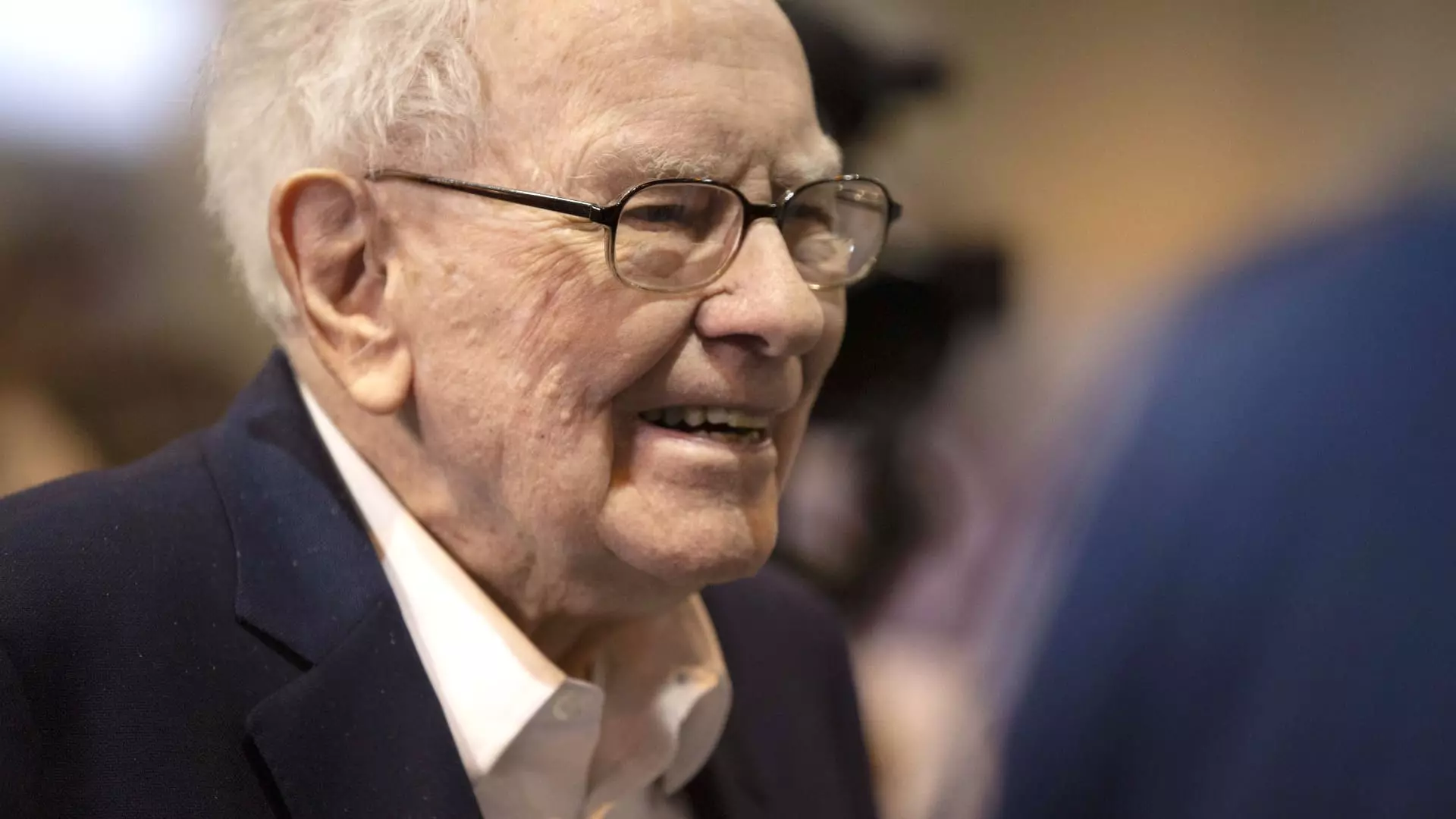In a remarkable turn of events, Warren Buffett, the 94-year-old investment maestro and CEO of Berkshire Hathaway, finds himself under the spotlight for a notably defensive investment strategy. At a time when most analysts would expect a legendary stock picker to be capitalizing on market opportunities, Buffett has instead sold a significant amount of stocks, progressively building a staggering cash reserve that now stands at an unprecedented $334 billion. This decision has not gone unnoticed, prompting questions and speculation among shareholders and investment enthusiasts alike. What could be driving this conservatism from a man renowned for his ability to seize equity opportunities?
Buffett’s latest annual letter, which many awaited with bated breath, unfortunately, left more questions than answers. While he reassured shareholders of his unwavering commitment to equities—asserting that “the great majority of your money remains in equities”—he offered little in the way of explanation for his recent decisions. The juxtaposition of holding a record-breaking amount of cash while endorsing a continued love for stocks creates a palpable tension that requires further analysis.
One cannot disregard the broader market context in which Buffett is operating. With interest rates projected to decline from their historical highs, many in the investment community are perplexed by Buffett’s reluctance to invest aggressively. Historically, Buffett has expressed trepidation about inflated valuations and limited buying opportunities. It’s evident that his patience is waning, as Berkshire Hathaway has now net sold equities for nine consecutive quarters, leading to an astounding total sale of more than $134 billion worth of stocks in 2024 alone.
This decline is particularly noticeable in Berkshire’s two largest equity holdings, Apple and Bank of America. While these companies have shown promise in the past, Buffett’s scaling back raises eyebrows about their current investment appeal. The paradox is further compounded by Berkshire’s decision to halt share repurchases, even as the company reports significant operating earnings. This disengagement amidst a robust bull market—where the S&P 500 has seen annual gains exceeding 20%—casts a shadow over Buffett’s typical bullishness.
Notably, Buffett hinted at the possibility that stock valuations are raising red flags for him. He articulated a neutral stance on selecting equity investments, indicating that at times, opportunities remain scarce. His statement, that “very infrequently we find ourselves knee-deep in opportunities,” suggests a shift in his usual optimism—the hallmark of his investment philosophy.
What’s more telling is Buffett’s acknowledgment of the emerging economic uncertainties. With a volatile political climate and concerns regarding an overarching slowdown in economic activity, his conservative strategy appears more calculated rather than a mere tactical retreat. The caution signals a potential recalibration of risk appetite, a shift that is unusual for a figure synonymous with audacious investing.
Another layer to this complex narrative is Buffett’s nod to his designated successor, Greg Abel. By endorsing Abel’s investment acumen and comparing him to the late Charlie Munger, Buffett signals not only confidence in Abel’s abilities but also hints at a transitional strategy within Berkshire Hathaway. Is Buffett positioning the company for Abel’s leadership by consolidating cash and adjusting major stock holdings? The speculation suggests a tactful stewardship designed to amplify Abel’s role as the decision-maker in a rapidly changing market landscape.
Buffett’s remarks on future capital deployments, especially regarding the five Japanese trading houses he has been investing in for nearly six years, accentuate this broader strategic vision. It reveals an inclination to channel capital into select avenues rather than dispersed across the equity market, which he currently finds uninviting.
As Berkshire Hathaway navigates these turbulent waters, shareholders must grapple with a fundamental question: Is Buffett’s understated approach a sign of wisdom or worry? The uncertainty surrounding stock valuations, combined with a noticeable shift in Buffett’s traditionally aggressive investment mindset, could position Berkshire for both challenges and opportunities in the coming years.
What is clear is that Buffett’s legacy and the strategies he has employed for decades are now being meticulously recalibrated. This period of uncertainty could very well serve as a crucial turning point for Berkshire Hathaway and its shareholders. For investors, the anticipation surrounding future moves will only intensify, fostering a keen interest in understanding how a man who has long championed equity will navigate this evolving economic landscape.

